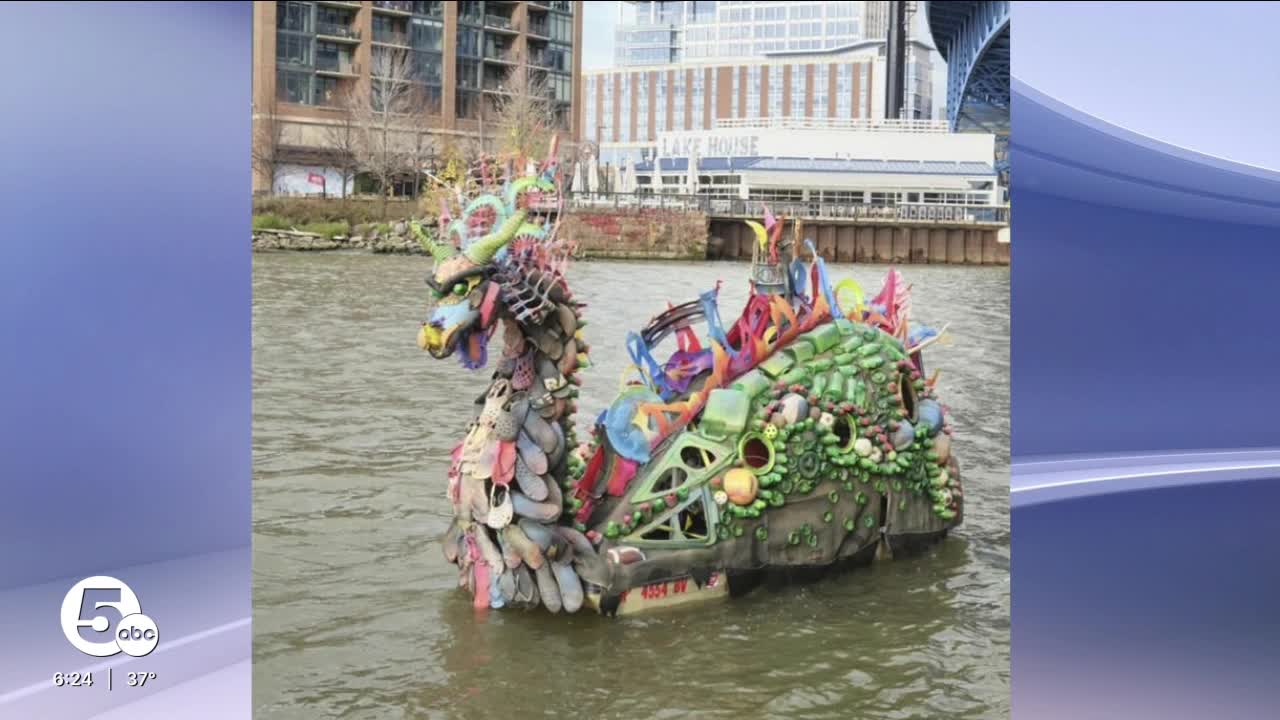A float fashioned from discarded plastic, nicknamed Bessie, recently drifted down the Cuyahoga River to spotlight plastic pollution in Lake Erie.
Last week, an homage to the river’s ongoing clean-up efforts drew a small crowd and was organized by a coalition of environmental groups to highlight microplastics and other waste in the region’s waterways.
The float’s message was reinforced by comments from Eddie Olschanski, founder of Trash Fish, who emphasized the importance of accessibility and community involvement as keys to making real progress.
Olschanski has been working tirelessly over the past several years to clean and restore the river, dedicating time and resources to removing trash and raising awareness of pollution issues affecting Lake Erie. His efforts are ongoing, reflecting his commitment to creating a healthier environment for future generations.
"You know, if you've seen it on the side of the road, we also get it in the river," Olschanski said, highlighting how waste from all areas eventually finds its way into local waterways.
Many residents of Cleveland, Ohio, rely on Lake Erie for their drinking water—approximately 400,000 people get their tap water directly from the lake, according to Cleveland Water.
Reflecting on his personal connection to the river, he said, “I've recreated in that river my whole life; that led me to see the negative affects.”
His experiences motivate his broader mission: to make the river healthier not just for volunteers with free time, but for every neighbor in the community.
Olschanski also spoke about practical access for the community:
“I took it on myself to give everybody else in the community, whether you have a dollar or not, you can come down and borrow our kayaks and give back a little bit and connect with that river and the lake,” he said.
His message highlights the importance of removing barriers to participation in river cleanups and advocacy efforts.
“Anything we can do on our end to halt that progression, I think we’re for the better,” Olschanski said. “We can’t recycle our way out of the plastics crisis.”
According to Olschanski, making ongoing community-driven actions like these is critical to addressing the broader environmental challenges facing Lake Erie and its waterways.




